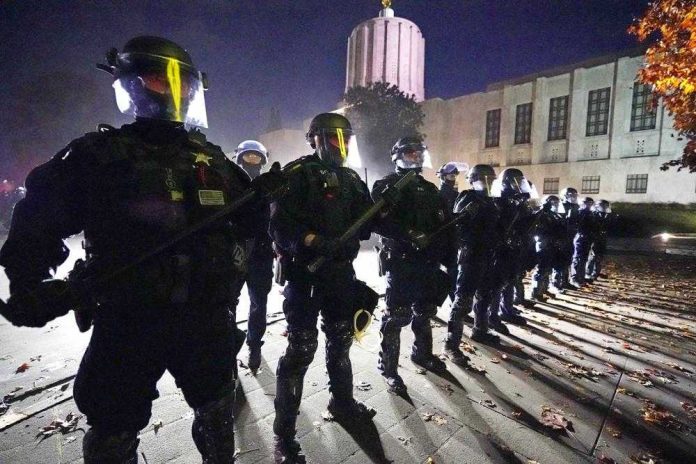By Kathleen Foddy
Associated Press
(AP) — A federal trial against three former Minneapolis police officers seeks to hold them responsible for not stopping George Floyd’s murder — and perhaps strike a blow against long-standing police culture that breeds reluctance to rein in fellow officers.
The circumstances of Floyd’s death — pinned under Officer Derek Chauvin’s knee for more than nine minutes, recorded from multiple camera angles — may help prosecutors clear the bar for conviction on a charge that’s rarely brought, in part because it can be difficult to prove. Regardless, several former federal prosecutors and legal experts see a message in the Department of Justice’s pursuit of charges accusing J. Alexander Kueng, Thomas Lane and Tou Thao of violating Floyd’s civil rights.
“This sends a real message to counterbalance that very strong cultural set of influences in policing that often prevent an officer from stepping forward and reporting or stopping misconduct,” said Jonathan Smith, former chief of the department division that oversees police civil rights inquiries.
The federal charges require prosecutors to prove the ex-officers willfully deprived Floyd of his constitutional rights — meaning that they knew what they were doing was wrong and still went ahead.
Chauvin was convicted of state murder and manslaughter charges last year and pleaded guilty to a federal civil rights charge. Kueng, Lane and Thao also face a separate state trial on charges they aided and abetted murder and manslaughter.
Police departments and local prosecutors have their own means to punish officers who don’t intervene. But high-profile examples show how risky it is, both personally and professionally, for officers who do intervene or who cooperate with investigations of fellow officers.
In Chicago, a key police witness against three Chicago officers charged with trying to cover up the 2014 shooting of Laquan McDonald testified that she was taunted as a “rat” by fellow officers who said her calls for assistance while on duty should be ignored.
In Florida late last year, an officer with less than three years experience pulled a sergeant by his belt away from a handcuffed suspect, apparently afraid he was about to pepper spray the man. The sergeant, a 21-year veteran, grabbed the officer — at one point placing his hand against her throat.
And in Buffalo, New York, Officer Cariol Horne was fired in 2008 after an arbitration process ruled that she had put other officers at risk when she stopped a fellow officer whose arm was around a handcuffed suspect’s neck.
The Florida officer drew the support of her chief for stepping in, though his public comments came only after a Miami TV station published video of the conflict. Horne, the Buffalo officer, was ultimately granted a pension — but only after a lengthy court battle and a push to change state law.

















